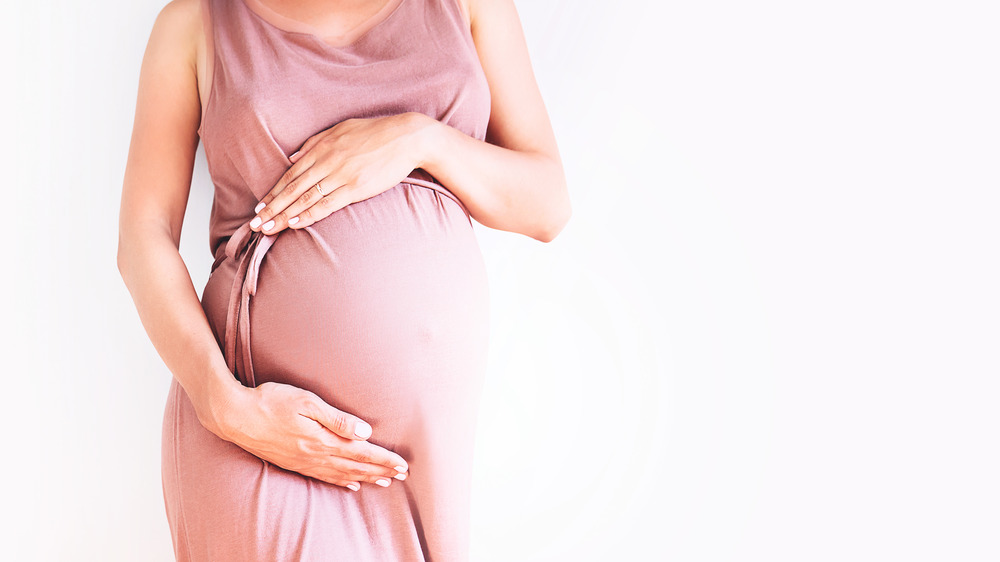What It Really Means When Your Belly Gets Hard During Pregnancy
Pregnancy comes with so much joy, but also so much uncertainty. You'll experience changes to the body, and unexpected symptoms throughout the nine months until you welcome your baby. Then, it's on to an entirely new set of questions — but that's another story! For now, if you are in your later second or the third trimester of your pregnancy, you may have experienced hardening of your belly. Um, what is happening?
The most common reason for this unusual feeling is Braxton-Hicks contractions, which are not real labor contractions that dilate the cervix in preparation for birth, but rather, practice contractions (via WebMD). These sensations, which last anywhere from around 15 to 30 seconds and can be longer, will typically begin around the twentieth week of pregnancy according to What to Expect. They are not cause for concern, but may take some getting used to.
Meanwhile, telling the difference between Braxton Hicks and labor contractions can be difficult even if this is not your first pregnancy.
When to worry about belly hardening during pregnancy
WebMD notes Braxton Hicks will not come and go with a regular cadence, and may dissipate if you change positions or hydrate. If you are not yet 37 weeks pregnant, and you notice your tummy tightening getting more intense, or if it doesn't go away after some time, you could be in preterm labor according to The Bump.
According to Healthline, this would most definitely be a reason to call your doctor. And there are other reasons your tummy getting hard is possibly concerning. If you find this is happening during the first trimester, it could simply signal that your uterus is growing to accommodate your also-growing baby.
But, if you also experience other troubling symptoms in conjunction with belly hardening, such as bleeding, or cramping, contact your OBGYN as soon as possible as these could be signs of a problem with the pregnancy.

